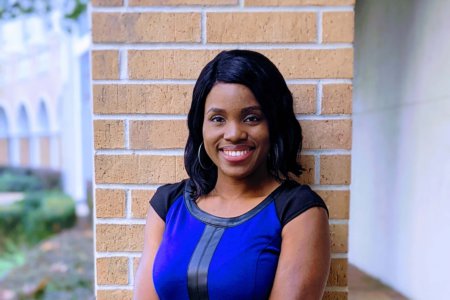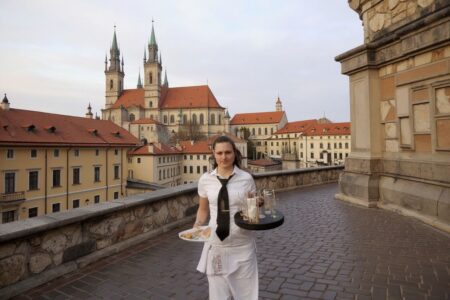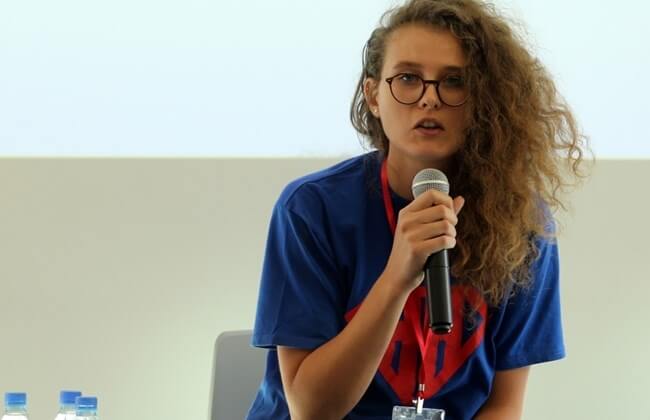
Lebanon is in the midst of a financial and economic crisis that has plunged the country into chaos. Its list of crises includes residents having restricted access to humanitarian aid, food insecurity and power problems. Coupled with being in the throes of a pandemic, country residents have not had it easy.
The World Bank has called it one of the most severe crises episodes globally since the mid-nineteenth century. Collectively, these issues have contributed to Lebanon being declared a hunger a “hotspot” by the UN Food and Culture Organisation. With vulnerable groups left to fend for themselves, companies such as FoodBlessed are indeed a blessing. Maya Terro, the organisation’s founder, takes food waste destined for the bin to distribute to the needy.
Her mission to tackle hunger and food waste in Lebanon started in 2012, and her impact has been far-reaching. In the past nine years, FoodBlessed has served some three million meals, in addition to rescuing over three million tonnes of surplus food.
Where does this deep-rooted passion for helping others come from? We talk to Terro about her mission to tackle food waste, her studies abroad in Europe and what her Chevening experience has taught her:
Walk us through your interest in social impact. Is this something you’ve always been passionate about?
I’m 35 now but I’ve been volunteering since I was only 14. I never imagined that one day I’d be leading my own organisation. Through volunteering, I learned that the secret to self-fulfilment comes from the change you want to see.
Even as a kid I always felt different and would march to the beat of my own drum by doing things that were stereotypically seen as wrong (like climbing trees, being expressive, being loud, etc). As I grew older, being different felt more like a burden than a blessing.

“I’m 35 now but I’ve been volunteering since I was only 14 and I never imagined that one day I’d be leading my own organisation,” she says. Source: Maya Terro
To this day, whenever someone asks me about who inspired me to be unapologetically myself, it would be Mulan — the Disney princess. She is my hero because she defied cultural and gender stereotypes, contributed to her country, was brave and empowered a whole generation of girls to follow suit.
At the end of the day, we should strive to be better humans instead of better men or better women. Over the years, I’ve seen how empowering volunteering with FoodBlessed has been.
I still remember the day when one of the male volunteers refused to be in a photo because he was wearing a kitchen apron. I let him know that if he felt his place wasn’t in the kitchen, he could leave because no one gets special treatment and we’re all equal.
After a moment of complete silence, he apologised and saw the sense in what I said. It was a good day for the neverending battle of the sexes.
What about your study abroad experience? Tell us about Italy, the Netherlands and the UK. What made you apply for the Chevening Scholarship?
Studying abroad changed my life for the best and was easily one of the best decisions I’ve made. I’ve always wanted to see the world since I was young and I never thought it would actually happen because I lacked the financial means to do so.
If you work hard, the impossible becomes reachable and in my case, my hard work over the years paid off. It wasn’t about the destination as much as the journey I experienced in each country that stood out.
However, Rome will always have a special place in my heart since Italy was my first time abroad on a plane by myself. Being abroad made me look at everything and everyone in my life differently.
In my free time, I would fly during my free time to a different part of Europe which was something on my bucket list. London and the Netherlands weren’t much different. Because the international student fee is expensive, wanting to continue my studies in Europe meant I had to apply for financial aid and scholarships.

“To this day, whenever someone asks me about who inspired me to be unapologetically myself, it would be Mulan — the Disney princess,” she says. Source: Maya Terro
This meant I got to pursue three master’s over the course of five years. Naturally, when I heard about the Chevening Scholarship, I applied. For this one, I had to apply twice. I cherish the memories that I will go on until the end of time.
What was the application process like?
A lot of work but nothing out of the ordinary really. Just like many other applications, it’s several hours in front of the computer and making yourself stand out.
What did the Chevening Scholarship cover and how did it help?
It covered the essentials — my lodging, food, and commute. Whatever I was able to save, I spent it on my travels.
What was the hardest and easiest part of the application? How did you overcome the challenges?
That’s a tough one. The easiest was starting the application. The hardest was actually getting to the last part and submitting it. I lost count of the number of times I edited and re-edited my entries.
A lot of patience, hard work and love was required from me to overcome these hurdles. My desire to get this scholarship to pursue my degree in the UK came from a place of love.
The first time I applied for the Chevening, I didn’t get in because I filled in an entry wrong. So, with patience for the second time around, I gave it my all and prepared myself for rejection. However, it was all good news because I won the scholarship.
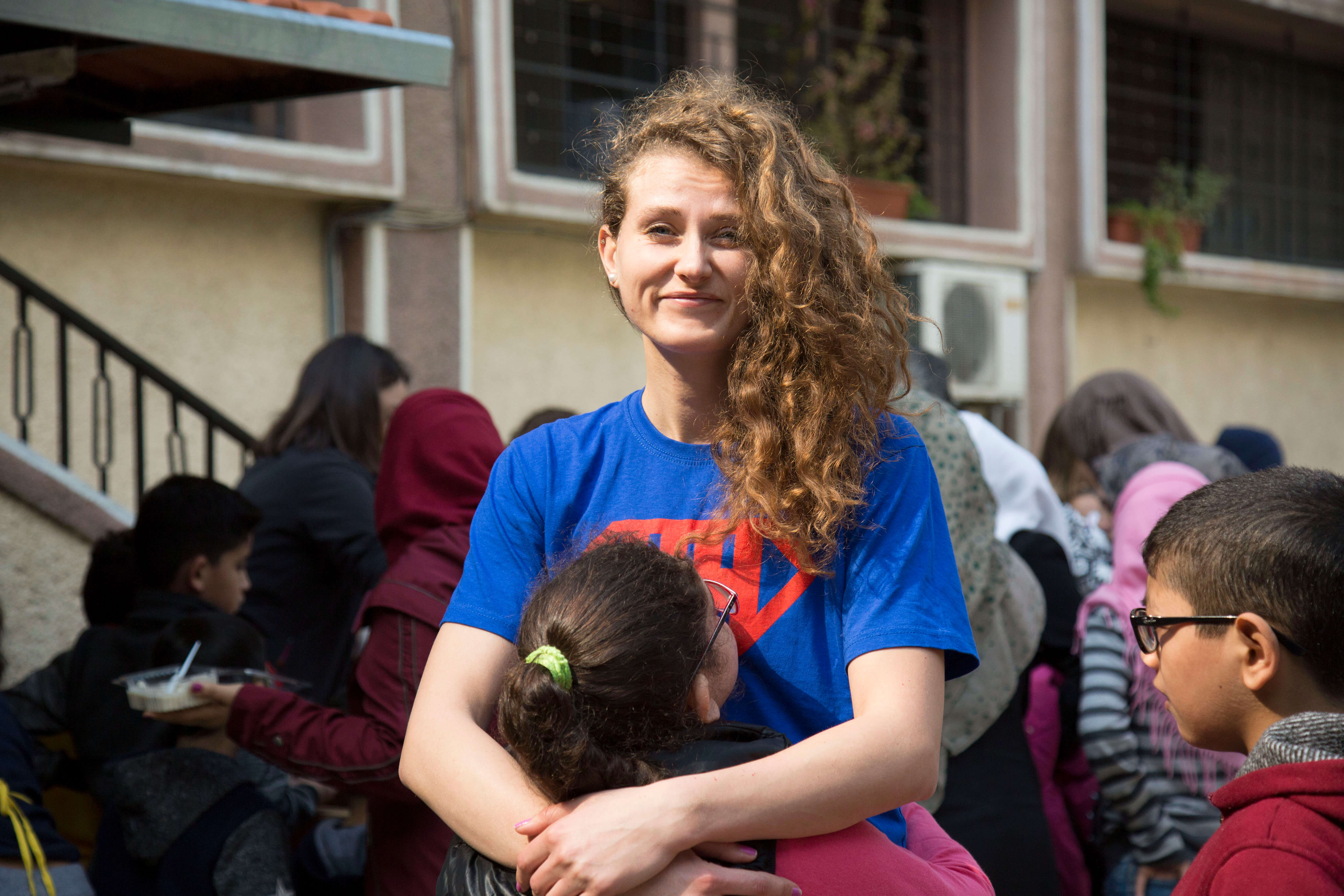
“At the end of the day, we should strive to be better humans instead of better men or better women. Over the years, I’ve seen how empowering volunteering with FoodBlessed has been,” she says. Source: Maya Terro
Can you share your Chevening experience at the SOAS University of London with us?
I chose this uni to study migration, mobility and development because the course is truly one of a kind. It’s also the world’s leading institution for the study of Asia, Africa and the Middle East.
With a truly global perspective, SOAS is the best place to get informed about the current thinking of our world. Also, the students there are probably among the most active individuals I’ve met because they’re very driven to campaign on issues they care about.
One of the key things I learnt during my time there is to be proud of my heritage and my background. It’s one of the most diverse unis in the UK.
Tell us about tackling food waste with your initiative, FoodBlessed. Do you have any plans to scale your company to a global level?
I started this because I wanted to fight food insecurity and food waste by empowering members of my community to give back all year long instead of seasonally. The sharing of food has always been part of the human story.
Sometimes, I had to remind myself that what I built years ago has transformed from an idea to an organisation and finally to a community. Now, we share a passion for food and my utmost dislike for food insecurity and food waste.
Walk us through your experience helping those affected by the Beirut Blast last year.
Four months after the Beirut Blast, our volunteers at FoodBlessed were able to pull off some outstanding achievements. The Beirut Emergency Relief Plan was launched on August 5 and my organisation worked in helping to sweep the streets, clean houses, provide food and financial assistance to affected low-income victims.
With the help of generous donors and exceptional volunteers, we cooked and packaged meals on a daily basis as well as delivering food parcels weekly. This included 100,000 cooked meals and 3,258 food boxes to people in need across Lebanon.
Additionally, we were able to provide financial assistance to victims of the explosion so they could renovate and repair their houses. We also provided baby and female essentials along with medicine and several other necessities.
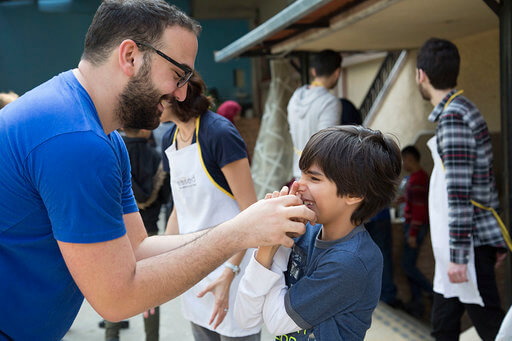
“I started this because I wanted to fight food insecurity and food waste by empowering members of my community to give back all year long instead of seasonally,” she says. Source: Maya Terro
FoodBlessed has grown a lot since its establishment, especially within the past three years. This comes as a result of the deteriorating economic and social situation in the country since November 2019.
I don’t have current plans to grow on a global level just because I think our role is big in Lebanon and needs us now more than ever. Fighting food insecurity and food waste in Lebanon has always been a priority and the heart of our mission, vision and values.
What would you advise future Chevening Scholarship applicants?
Be unapologetically yourself all the time. Remind yourself to never lose hope and be true to yourself. When you apply, don’t fabricate stuff just to impress the panel as you might fool them then but you’ll be caught out in your interview — nothing beats honesty.
Never stop learning because there is a lot of power in knowledge. If you don’t get the scholarship the first time, keep trying! Find comfort in the fact that you at least made an effort and as I always say, trying is half the battle.
Mind your mental health. I’ve battled with severe anxiety and depression for five years now and even now I’ve not fully recovered. Remember that it’s okay not to be okay as your mental health is a work in progress.
Find your safety net which could be an object, a person, a place or even your religious beliefs. Applying to the Chevening Scholarship can be stressful but nothing worth getting is ever easy. Lastly, speak up — sharing is caring and leaves less room for judgement.








